A recent announcement from the European Union may prove to be an important development in the Great Reset, a globe wide movement to build back better in the post-pandemic world, particularly as it relates to the sustainable development goals of ensuring responsible consumption and production and climate action as shown on this graphic from the United Nations:
If we go back to mid-2021, we find this announcement on the European Union's website with the pertinent portions highlighted:
As you may have gathered, in June 2021 after receiving an assessment by the European Food Safety Authority (EFSA), the European Commission authorized the marketing of dried Tenebrio military larvae aka yellow mealworm as a novel food item with the whole dried insect to be used in snacks and as a food ingredient in a number of other food products with a target consuming population to be the general population. Approval is subject to further research into a possible link to allergic reactions from the eating the insect.
Just in case you were curious, this is what the yellow mealworm looks like:
Mealworms provide a source of protein, fat and fibre. Mmm mmm good!
Let's move forward a few months. On November 12, 2021, the European Commission announced this after receiving an assessment by the EFSA:
The European Commission has now authorized the marketing of dried Locusta migratoria aka migratory locusts as a novel food item consisting of the frozen, dried and powder forms of the insect. It will be marketed as a snack or as a food ingredient. When sold in frozen and dried forms, legs and wings will have to be removed by the producer to minimize the risk of intestinal constipation. Ground forms can include both legs and wings.
Again, in case you were curious, here is what a mouth-watering migratory locust looks like:
In this case, the announcement includes the answer to this interesting question:
Will insects for food and feed contribute to the objectives of the Farm to Fork and the Green Deal?
Here's the answer with my bolds:
"According to the FAO (Food and Agricultural Organization of the United Nations), insects as food emerge as an especially relevant issue in the twenty-first century due to the rising cost of animal protein, food insecurity, environmental pressures, population growth and increasing demand for protein among the middle classes. Thus, alternative solutions to conventional livestock need to be found. The consumption of insects therefore contributes positively to the environment and to health and livelihoods."
FAO also indicates that insects are a highly nutritious and healthy food source with high fat, protein, vitamin, fibre and mineral content. Therefore, they are an alternative protein source facilitating the shift towards healthy and sustainable diets.
Here are the first two pages from a publication by the FAO on insects:
See, eating insects is all about being green and saving Mother Earth from further meat-based devastation! How utterly inconsiderate of us all.
The European Commission also informed the useless eaters that the EFSA has assessed Acheta domesticus aka the house cricket as a safe novel food item. and that there are 9 additional applications for insects which are subject to a safety evaluation by the EFSA.
Having noted that the consumption of insects is important to the Green Deal, let's look at what the overlords at the World Economic Forum have to say about this issue since they are experts on absolutely everything:
And, just in case you happened to think that this was a one-off for the WEF, here is another article on the merits of eating insects:
So, there you go. Insects for the useless eaters/organ donors while the self-proclaimed ruling class feasts on chickens, fish, pigs and cattle. After all, it's the least that we can do for the billionaire class and their
Addendum:
Thanks to a reader for the insect-based food product in this article which also sounds absolutely delicious:
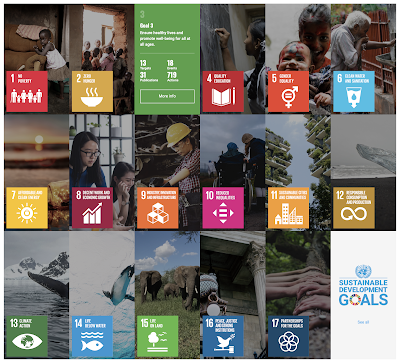
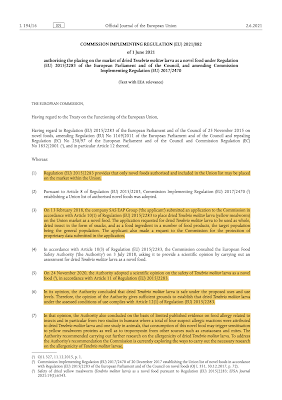


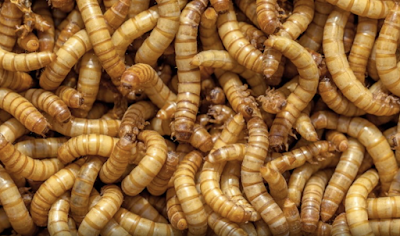
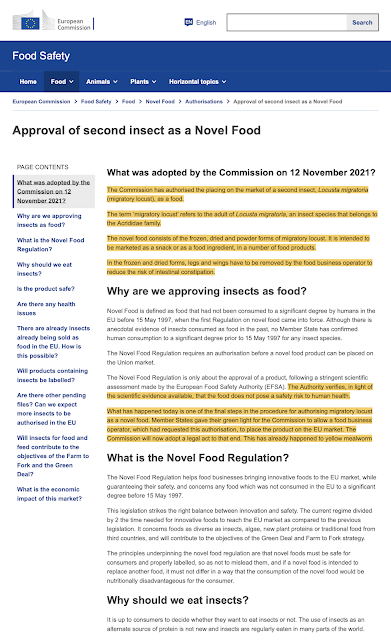
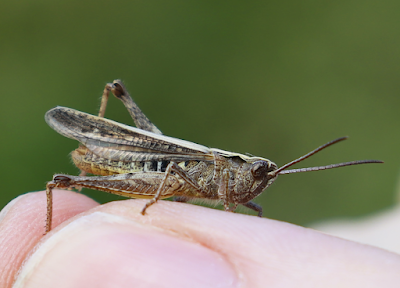
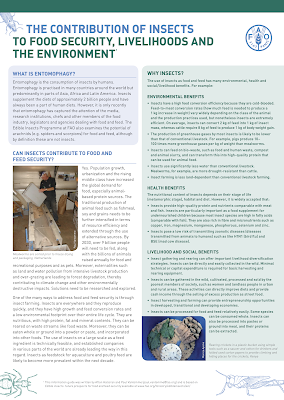


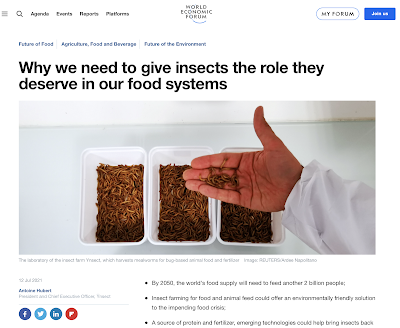






van Huis, Arnold
ReplyDeleteEdible insects: future prospects for food and feed security
Food and Agriculture Organization of the United Nations 2013
Just stumbled over this
ReplyDeletehttps://www.euronews.com/green/2022/02/18/gummy-bears-made-of-locusts-are-now-a-thing
Sounds appetizing!
Delete